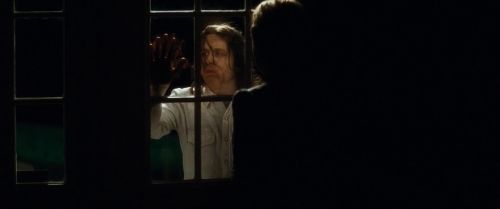Scream 4

Originally published on 10/11/21 on Letterboxd
There's a palpable haze to everything in this, like a half-remembered dream. That is, of course, the central conceit of Craven's final film: that memory is made up of bits and pieces which you can't put back together because it's been shattered beyond recognition- all anyone remembers is the bits that make for good stories. Image as knife, knife as camera lens. Everything's captured on tape, but the image itself can only really act as a shallow substitute for the real thing. In tearing through guts, ribs and muscle, it hollows people out.
Much like the many corpses lying around this ghost town of a text, Craven's characters are hollowed out until they're just vessels trying to claw towards a past that they haven't learned a damn thing from. The archetypes-the reporter, the cop-they're all still here, but despite the brightness of the lights here, there's no shine anymore, exacerbated by their inability to let go of these archetypes. The only remaining archetype, that of the survivor, is robbed of their autonomy because all they are now is their story- a ghost story. In Scream 3, Craven posited that the violence of images is rooted in their origins of exploitation; here, he suggests that these images are inherently poisoned.
What renders this a particularly chilling proposition is not just that these people have lost control of the archetypes that they once fit into so cleanly, but that they've been twisted into something else entirely by the cult of the image: just people in a movie, and as the cult of the image replicates, they hollow out the guts of the very people they try to imitate.
You could ostensibly call this a warning about the way in which the image can be leveraged as a weapon, but to me, this rings truer as not a condemnation, but a reflection, because Craven isn't trying to say that this is something that needs to be stopped: he's saying it's too late.
